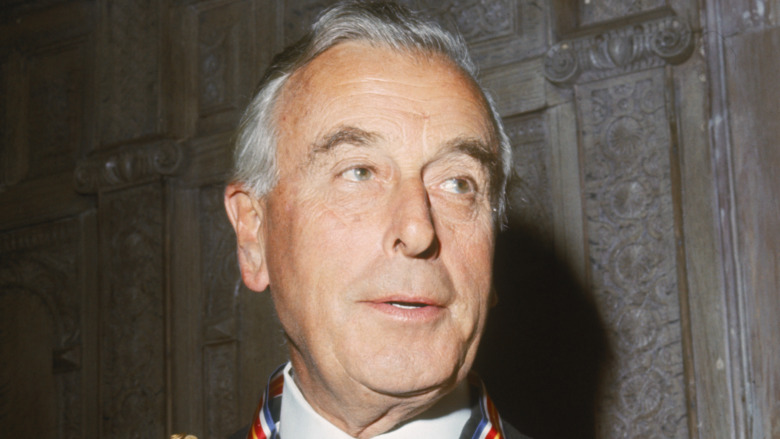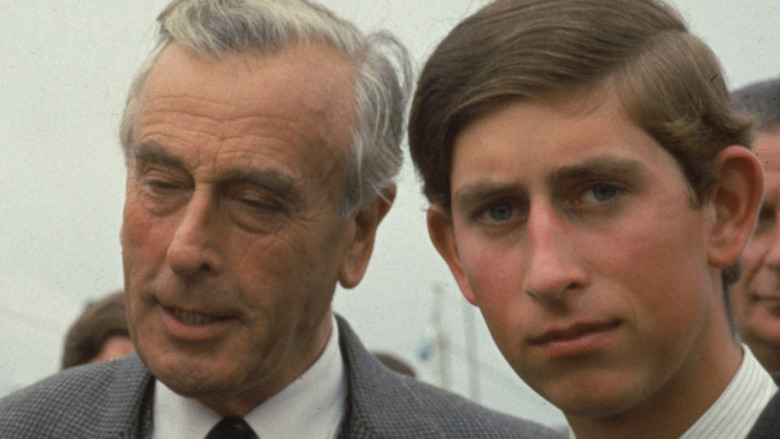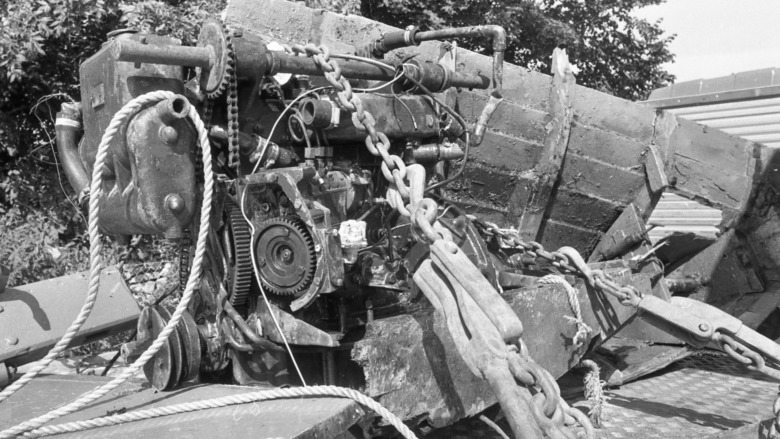The Tragic Death Of Lord Louis Mountbatten
Lord Louis Mountbatten was a pivotal figure in the history of the British monarchy. Those who've watched The Crown are no doubt familiar with the man known affectionately on the show as "Dickie," but many may not know what a powerful (and divisive) person he was. As a great-grandson of Queen Victoria, an uncle to Prince Philip, and surrogate paternal figure to a young Prince Charles, he was as influential behind the scenes at the palace as he was beyond its walls.
Born in 1900, Mountbatten lived through some of the most eventful years of the 20th Century. By age 13, according to Britannica, he'd entered the Royal Navy and quickly rose through the ranks, eventually becoming Britain's supreme allied commander for Southeast Asia during World War II.
He successfully wrested control of Burma from the Japanese and was later named Viceroy of India, where he was instrumental in facilitating India's partition from Pakistan, an action The Guardian referred to as "poorly planned and brutally carried out." Despite the controversy, Mountbatten continued his meteoric rise, eventually becoming Chief of the Defence Staff for three Prime Ministers.
Mountbatten was a remarkably powerful man, as well as a very public figurehead of the monarchy. As such, he was a compelling target for the Irish Republican Army (IRA), the paramilitary organization that sought Irish freedom from England. He survived his first IRA assassination attempt in 1978, but his luck would not hold.
Lord Mountbatten's role in Prince Charles' life
One of The Crown's more humanizing storylines centered on the relationship between Mountbatten and his great-nephew, Prince Charles. Mountbatten served as a confidante for the young prince, grooming him in many ways for the role of King he will (presumably) still one day inherit.
According to Town and Country, Prince Charles was once heard to say of Mountbatten, "I admire him almost more than anybody else I know." Unsurprisingly, the close relationship between the two was reportedly a source of tension between Phillip and his uncle, who seemed to exert a great deal of influence on the young prince.
According to Tatler, Mountbatten offered Charles conflicting advice, encouraging him at one point to "sow his wild oats," while also trying to use his influence to get Charles to marry Mountbatten's granddaughter (the royal lineage is notoriously, and often confusingly, interwoven). Reportedly, Mountbatten also discouraged Charles' interest in his now-wife, Camilla, suggesting instead that he marry someone "young and malleable," as Tatler phrased it, a suggestion that, if it did take place as depicted on the show, surely influenced Charles' later interest in Diana.
Lord Mountbatten's death
Near the end of his life, Mountbatten was a well-known public figure and, as Oprah Daily explains, a "high-ranking member of the military and a well-regarded diplomat." In other words, he was an ideal target for a political assassination.
In 1979, the ongoing tensions and violence between Northern Ireland's Catholics and its Protestants (whose sympathies lay with the crown) were so bloody and protracted, they became known simply as "The Troubles." On August 27 of that year, Lord Mountbatten became a victim of The Troubles and, significantly, the conflict's first royal casualty.
Mountbatten was on vacation in Ireland's County Sligo, near the border with Northern Ireland, when he and several members of his family (along with a few others) took a boat out on Donegal Bay. According to History, they'd been sailing less than 15 minutes when the boat, carrying a total of seven people, was ripped apart by a massive explosion. A witness described the boat after the blast as looking "like a lot of matchsticks floating on the water." Mountbatten and his grandson were among those killed that day. A splinter group associated with the IRA immediately claimed responsibility for the assassination, reports History.
In 2015, Prince Charles returned to the site of the explosion and, in an emotional speech, struck a conciliatory tone, saying, "Let us, then, endeavor to become the subjects of our history and not its prisoners."


